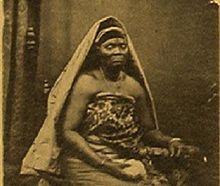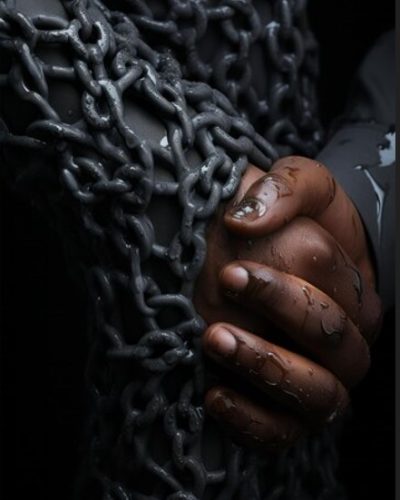African Complicity
This Knowledge Base report explores African complicity in the horrible trade, addressing both the facilitators and the resisters, and analysing the long-term consequences for African societies. Truth be told.

This Knowledge Base report explores African complicity in the horrible trade, addressing both the facilitators and the resisters, and analysing the long-term consequences for African societies. Truth be told.

The transatlantic slave trade is often portrayed as a story of European exploitation and brutality. While this is true, the narrative is incomplete without acknowledging the role that some Africans played in facilitating this trade. Many African rulers, merchants, and intermediaries were active participants who benefited from the trade.
Their motivations varied, ranging from economic incentives to political strategy, and their involvement was complex, shaped by the dynamics of power, wealth, and survival within African societies. Understanding this aspect of history provides a more nuanced view of the transatlantic slave trade, recognizing both the agency and the varied responses of African actors during this tragic period.
Long before the arrival of Europeans, African societies had developed sophisticated political, economic, and social systems. Slavery existed in many African societies, though it often took different forms compared to the chattel slavery practiced in the Americas. In some regions, slaves were captives of war, debtors, or criminals, and they were integrated into households as domestic workers or laborers rather than being treated as property to be bought and sold.
The arrival of Europeans seeking slaves for the plantations of the Americas transformed this internal system of slavery. European demand created new opportunities for African rulers and merchants who were willing to engage in the trade.
The lucrative nature of the transatlantic slave trade prompted many African societies to adapt their economies and political systems to meet the demands of European traders.
Several powerful African kingdoms and empires were heavily involved in the transatlantic slave trade, acting as suppliers of captives. Among the most prominent were the Kingdom of Dahomey, the Ashanti Empire, and the Oyo Empire.
The Kingdom of Dahomey:
Located in present-day Benin, Dahomey became one of the most notorious African kingdoms involved in the slave trade. The kingdom’s rulers engaged in military campaigns to capture slaves, who were then sold to European traders in exchange for guns, alcohol, and other goods. The slave trade was so central to Dahomey’s economy that its rulers built a powerful military state around it, ensuring a steady supply of captives for the transatlantic trade.
The Ashanti Empire:
In what is now Ghana, the Ashanti Empire rose to prominence through its involvement in the slave trade. Like Dahomey, the Ashanti engaged in wars of expansion, capturing prisoners of war who were sold to European traders. The wealth generated from the trade helped the Ashanti build a powerful centralized state and maintain control over a vast territory.
The Oyo Empire:
In present-day Nigeria, the Oyo Empire also became a major player in the slave trade. Oyo’s rulers capitalized on their control of trade routes and military strength to dominate the region, capturing and selling slaves to European traders. The wealth generated from the trade allowed Oyo to expand its influence and maintain a powerful cavalry force that was instrumental in its regional dominance.
These kingdoms and empires were not passive victims of European exploitation. Instead, they actively shaped the trade, using it to further their political and economic objectives. However, their participation in the slave trade also had long-term consequences that would eventually contribute to their decline.

African involvement in the transatlantic slave trade was driven by a range of motivations, including political, economic, and social factors.
Political Motivations:
For many African rulers, participation in the slave trade was a means of consolidating power and expanding their influence. By acquiring European firearms and other goods, they could strengthen their armies and secure their dominance over rival states. In some cases, African rulers entered into alliances with European traders, using the trade as a tool for political leverage.
Economic Motivations:
The economic benefits of the slave trade were significant. African rulers and merchants who participated in the trade gained access to European goods that were otherwise unavailable. These goods, particularly firearms, textiles, and alcohol, were highly valued in African societies and could be used to enhance one’s status and power.
Social Factors:
In some cases, African participation in the trade was influenced by existing social structures. In many African societies, slavery was already a part of the social fabric, and the transatlantic trade represented an extension of this system. The trade also reinforced existing social hierarchies, with elites benefiting at the expense of the enslaved.
These motivations illustrate the complex nature of African involvement in the slave trade. While some Africans participated willingly, others were coerced or acted out of necessity in response to external pressures.
African Resisters and Dissenters
Not all Africans were complicit in the transatlantic slave trade. There were many who resisted or opposed the trade, refusing to participate or actively fighting against it.
Resisting Chiefs:
Some African leaders refused to engage in the slave trade, either on moral grounds or because they recognized the long-term damage it could cause to their societies. These leaders sometimes faced pressure from both European traders and rival African states, making resistance difficult and dangerous.
Anti-Slavery Movements:
In some regions, there were organized movements against the slave trade. These movements often emerged in response to the devastation caused by the trade, including depopulation, internal conflicts, and the breakdown of traditional social structures.
These acts of resistance are a reminder that African involvement in the transatlantic slave trade was not uniform nor widespread.
There were individuals and communities who recognized the destructive nature of the trade and sought to protect their people from its effects.
The long-term consequences of African participation in the transatlantic slave trade were profound. While some African rulers and merchants gained wealth and power, the trade ultimately destabilized many African societies.
Depopulation:
The massive loss of population due to the slave trade had devastating effects on African societies. Entire communities were depopulated, leading to labor shortages, economic decline, and the weakening of political structures.
Internal Conflicts:
The competition for control over the slave trade fueled internal conflicts within African societies. Wars of expansion, raids, and rivalries between states and communities increased as African rulers sought to capture slaves for sale to Europeans.
Economic Impact:
While some African elites profited from the trade, the focus on capturing and selling slaves often came at the expense of other forms of economic development. In the long term, this reliance on the slave trade hindered the growth of diversified economies in many regions.
African participation in the transatlantic slave trade was complex and varied. Some African rulers, merchants, and intermediaries were active participants, driven by political, economic, and social factors. Others resisted, recognizing the destructive nature of the trade. Ultimately, the trade had profound and lasting consequences for African societies, contributing to the destabilization, depopulation, and economic challenges that would shape the continent’s history for centuries to come.
Understanding African involvement in the slave trade requires a nuanced approach that acknowledges both the agency of African actors and the broader context of European exploitation. This history challenges us to confront the complexities of human behaviour in times of crisis and the far-reaching impact of the transatlantic slave trade on both sides of the Atlantic.
To provide the best experiences, Afrikorsou.com uses technologies like cookies to store and/or access device information. Consenting to these technologies will allow us to process data such as browsing behavior or unique IDs on this site. Not consenting or withdrawing consent, may adversely affect certain features and functions.